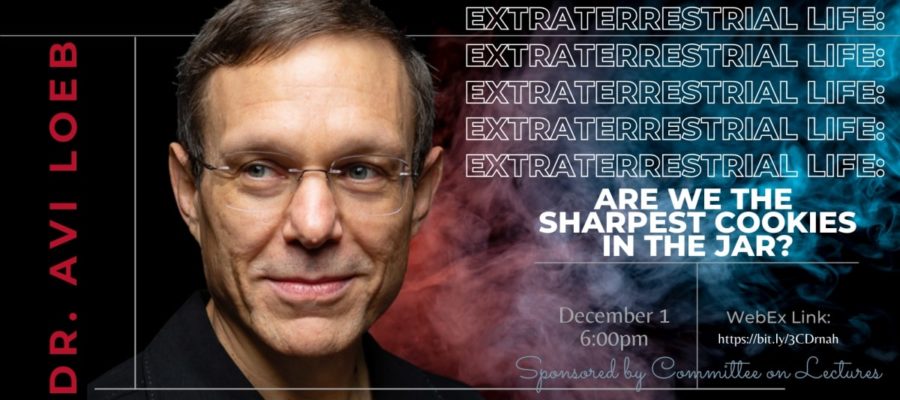Harvard professor discusses extraterrestrial life and future of the universe in lecture
Harvard professor Avi Loeb discussed the possibility of extraterrestrial life in a lecture Wednesday night.
December 2, 2021
Are we alone in the universe?
Avi Loeb, a science professor at Harvard University and best-selling author, says this is the most significant question in science. In a lecture on Wednesday titled “Extraterrestrial Life: Are We the Sharpest Cookies in the Jar?”, Loeb discussed his search for extraterrestrial life and some of space’s other big questions.
Loeb’s most recent book, “Extraterrestrial,” discusses black holes, the first stars, the search for extraterrestrial life and the future of the universe. Although some believe his ideas are controversial, Loeb focuses on the advanced alien technology that entered our solar system in 2017.
This object, named ‘Oumuamua’, was discovered by a University of Hawaii telescope that was designed to track asteroids and comets in Earth’s atmosphere. This interstellar object is thought to be made out of rock and metals, stretching up to 400 meters long. Having proof of such an object existing in the universe was exciting for many scientists and opened up new opportunities to explore further into outer space.
Following these findings, Loeb founded the The Galileo Project. The Galileo Project “searches for physical objects, rather than electromagnetic signals, associated with extraterrestrial technological equipment.” This project has plans to assemble the first system of instruments that will survey the sky for these objects on Harvard’s campus. It will use infrared sensors at night and an optical telescope radar system during the day to survey the sky.
With this new technology, Loeb hopes to discover more interstellar objects as they enter Earth’s atmosphere.
A member of the audience asked him why so much of the science community resists the idea that there could be extraterrestrials.
“It all has to do with the egos of scientists,” Loeb said. Many scientists that have been researching for years do not want to give up the old information they spent so much time learning, according to Loeb. They tend to ridicule anything that looks different or new and result in using their expired knowledge for the case.
Loeb does not let this affect his desire to dig deeper. While not promising that humanity will make contact with extraterrestrials, he is confident that they will make a new discovery within the next decade.
To watch the full lecture with Avi Loeb, visit the Iowa State Lecture Series’ website.

















